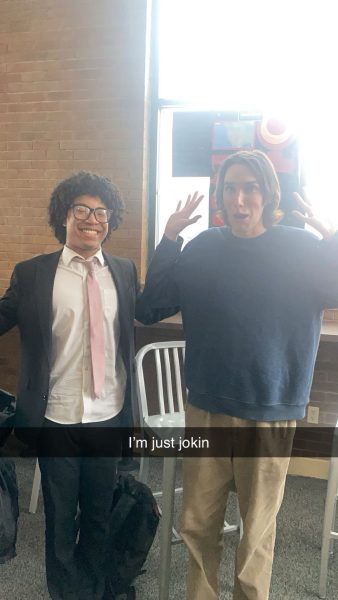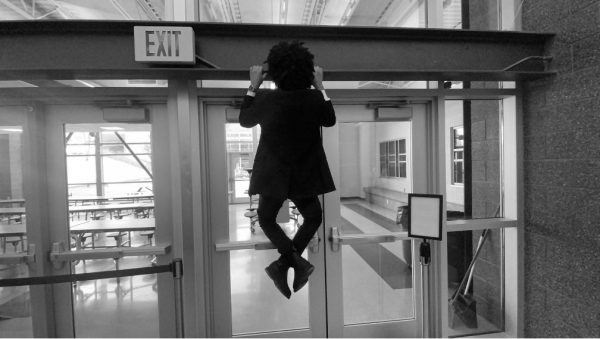TikTok Consumes Young Adults’ Lives
The trending app, TikTok, was created to make lip-syncing and dance videos to post to the public. With this user base and unified brand, this app soared and became popular very quickly. In 2018, the app surpassed Twitter, Instagram, YouTube, and WhatsApp and became the most downloaded app on the app store.
Despite the popularity of TikTok, no one was prepared for the greater consequences that were about to come for younger generations. The largest negative impact TikTok has is the sheer amount of time that users spend on the app. Because the app shows eye-grabbing, short videos, individuals find it hard to stop scrolling.
The deep secret that nobody is paying attention to is what really happens to the brain during the hours individuals scroll. When a young adult simply picks up their device, consequences such as mental health, bullying, negative comparison, safety concerns, and addiction all can occur.
A current issue among teens is eating disorders and difficulty with body image. Co-founder of the Center for Hope & Health, Melissa Harrison, claims that TikTok is a “trap” and that patients have learned how to restrict their eating from TikTok. According to the International Journal of Eating Disorders, when the pandemic hit, 62% of anorexia patients had more drastic symptoms during quarantine. With all the time individuals had on their hands, social media was the biggest form of entertainment. Young adults found themselves constantly surrounded by diet, weight loss, workout, and nutrition videos. As young individuals formed an online community where they chatted about eating disorders and swapped tips for the best ways to lose weight and look skinny, people started to feel as if their body was something they needed to obsess over.
Overall, the app has an issue with recommendation algorithms, which feed people what the app thinks they want to see. Do you love cooking? Great, the app will feed you more videos on cooking. Do you suffer from an eating disorder? Awesome, the app will think you have anorexia and keep giving you triggering content!
“The algorithm on TikTok makes it so that liking even one video in relation to eating or fitness rewires your entire feed to display just that,” said Junior Mackenzie Joiner. “Usually, when I’m on TikTok it’s meant to be a little break to take my mind away from whatever I may be doing. Whenever I’m done with it I end up feeling more stressed and more distraught than before. Every time I scroll it’s another video.”
 Unfortunately, bullying has always been a known issue with social media. This is true because social media allows teens to say anything they want with just a simple click. Posting on social media is like saying things to a person under a mask. It’s a lot easier when it’s not directly to their face.
Unfortunately, bullying has always been a known issue with social media. This is true because social media allows teens to say anything they want with just a simple click. Posting on social media is like saying things to a person under a mask. It’s a lot easier when it’s not directly to their face.
Cyberbullying has been the most prevalent on TikTok from hurtful comments when a creator is perceived as not good enough. The app was created as a fun and safe space to post unique content but has now become a toxic environment where users speak without a filter. Cyberbullying can result in greater mental health issues like depression and anxiety which can then result in self-harm, as well drug and alcohol use among many others. TikTok is a cyberbullying hotspot because people feed off of the thrill of comments and criticize every flaw of every video.
“No one understands how judgemental and dangerous TikTok is because it’s all we are used to. Every single person has so much power with what they say on social media. I personally get affected by this every day, and [it] has created a subconscious fear about what I post,” claimed Joiner.
TikTok has become one of the most popular social media apps and is built around an enormous library of user-created short-form videos. The app has accomplished one billion active monthly users in 2021 — which makes it one of the largest social media apps. Every social media app has effects on teens, yet TikTok seems to have been able to create multiple severe concerns in only a few years. Finding ways to properly manage such a powerful app can prevent a lot of young adults from suffering mentally.






